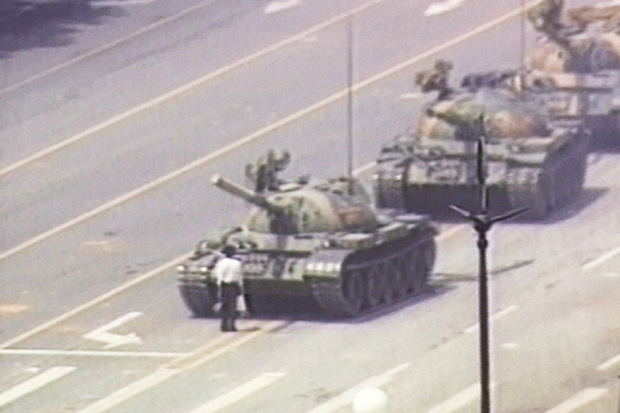Twenty-five years ago, Rowena Xiaoqing He, then a schoolgirl, was participating in the Tiananmen-supporting demonstrations in Canton. Far from the capital, this was one of several hundred cities that rose up during that Chinese spring. Following the Tiananmen killings on 3–4 June 1989, she was warned by her teacher to remove the black mourning band she wore on her sleeve. After some years working in Canton she moved to Canada, where she secured advanced degrees; she now teaches an undergraduate course on Tiananmen at Harvard.
Tiananmen Exiles is a brave book. It concentrates on the testimonies of three of the student leaders in Beijing and Canton, two of whom are still barred from their homeland. Rowena He shows, after meticulous interviews conducted over long periods, how these men were brought up, how their views of what they intended and accomplished in 1989 differ, and, fascinatingly, how their memories and opinions have changed over the years. She adds considerable analysis of her own brief time as an adolescent dissident in China, which, together with her experiences and investigations abroad, have led her to publish a book that may imperil her if she ever tries to return home.
Writing eloquently, with controlled passion, she asks probing questions of the three men — which they occasionally dodge — and reaches conclusions that will enlighten many, like myself, who were either in Tiananmen Square at the time or have read much about it since. Of these, the most rewarding insight is that
the exiled students were ‘patriots’, betrayed by the Beijing regime: they did what they had been taught — to sacrifice for the good of the country — but ironically they were punished by the very system that had instilled in them these values, and they were abandoned by the country for which they had made sacrifices.
This explains what to foreign observers seemed so strange: that the students and workers in Tiananmen Square, and elsewhere in China, who had been brought up on films, books and operas about sacrificing their lives for their country, sang the ‘Internationale’ during the first weeks of the demonstrations and only later began to call for the resignations of Li Peng and Deng Xiaoping and even for the end of the Party.
Two of this book’s main subjects are well known and have been interviewed in the past: Wang Dan is the most famous, and became, after that fateful 4 June, the most wanted man in China until he was finally arrested and imprisoned. Shen Tong, who fled to the United States six days after the killings, has been condemned in certain dissident circles for subsequently returning to China (where he was detained for 54 days) and doing business there. But the third figure, Yi Danxuan, is almost unknown, even to keen scholars of Tiananmen, having been a student leader in Canton — where he was detained and imprisoned before moving to the US in 1992.
Admirably, Rowena He does not criticise these by now middle-aged men for any contradictions in what they have said or done, or for their continued reticence on certain matters. She rightly says:
It is unfair to criticise their efforts because some of the leaders have fallen short of public expectations. It is also unreasonable to credit one single individual for any accomplishment achieved as a result of the movement’s efforts.
Instead, she lets them speak for themselves, presenting
the complexities, confusions and complications in the lives of these young men [there is barely a mention of Chai Ling, an important and now hugely controversial woman leader] who distinguished themselves as leaders of the Tiananmen movement.
And she gently notes the sufferings which have resulted from their courage and continuing dissidence, when many others have fallen silent.
Where I disagree is when He says that the
1989 Tiananmen movement was the most serious open conflict between the communist regime and the Chinese people since the establishment of the People’s Republic in 1949.
God knows it was ghastly enough, but the first years of the communist period, when Mao’s bloodthirstiness was encouraged by Deng Xiaoping and Zhou Enlai, witnessed the executions of at least two million souls; and during the Cultural Revolution of 1966–1976 many more millions died, including those killed by the army.
He’s own parents suffered during those years, but like so many Chinese they scarcely mentioned the horrors of the past to their children; so that even though He is well-versed in her country’s history, that earlier period hasn’t touched her in the way Tiananmen has.
Its few factual errors do not detract from this book’s masterly narrative and analysis. Apart for being told off about her black armband, Rowena He emerged unscathed from the convulsions of Tiananmen. But in her mind and heart she is devoted to keeping the movement’s significance alive, and her often profound book is an unmistakable sign of her devotion to that cause.





Comments